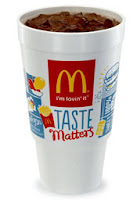Pompeii, by Bastille. It's a
song that most of us know. The song reached #5 on the Billboard Hot 100 chart.
It has sold over 3.4 million digital copies. Streamed on the radio for over 50
weeks, the song was aired to all kinds of people in all kinds of places. The
tune and lyrics to this song have been loved by audiences all over the U.S.A
and the U.K. But why?
The song begins by
explaining that the world we live in has been tainted, blemished, by sin and
hate:
We were caught up and lost in
all of our vices.
In your pose as the dust
settled around us.
And the walls kept tumbling
down
On the city that we
loved
Great clouds roll over the
hills
Bringing darkness from
above.
It goes on to ask the
question, "Can you still remember innocence and goodness?"
But if you close your
eyes,
Does it almost seem
like
Nothing changed at all?
And if you close your eyes,
Does it almost feel like
You've been here before?
And finally, "What are
we going to do?"
How am I gonna be an
optimist about this?
I was struck the first time
that I heard this song about how closely is resembles the story of Genesis. In
the first book of the Bible, we hear of man's fall from the garden of Eden.
Why? Adam and Eve ate of the Tree. It seems like such a small thing, but it
made all the difference. As a result, we live in a fallen world, with fallen
people. This is where Pompeii comes in. The song asks, "We are in such a
mess. What are we going to do?"
What are we going to do?
This question strikes me as crucial in today's world. We are
surrounded by the wreckage of our sin, and yet, we are called to "be
perfect" (Matthew 5:48). How does that work?
Well, I think that God has instructed us on our path to holiness with this
verse:
10 Finally, be strong in the Lord and in the strength of his
might. 11 Put on the whole armor of God, that you may be able to stand against
the schemes of the devil. 12 For we do not wrestle against flesh and blood, but
against the rulers, against the authorities, against the cosmic powers over
this present darkness, against the spiritual forces of evil in the heavenly
places.
-Ephesians 6:10-12
I think that this verse is a perfect "call to action"!
It tells us exactly how to battle the forces of evil on earth. Listening to
this song while thinking about this verse is almost like reading the
Old Testament with New Testament eyes! We see the misery and darkness
of our sin, and the aid and relief that God brings us when we fight for Him.
Jesus has been crucified, and through his death, we received life. We are
"able to do all things through him", including the destruction of
Satan. He has not only called us to this job, He has equipped us for it.
I love the parallels to the Christian life that this song draws
(even if they are unintentional!) and I think that it is a really inspiring
song, when we add the battle-cry of Ephesians 6 to it. Living on this earth is
a battle, and to win it, we need to constantly remind ourselves of how Satan is
trying to win us over. In this way, one day, we will triumph over the
"spiritual forces of evil in the heavenly places", and we will be
reunited with the author of all light.
For
more interesting blog posts posts about a fallen world, and how it affects us,
please visit my friend StrongJoy's blog here.




